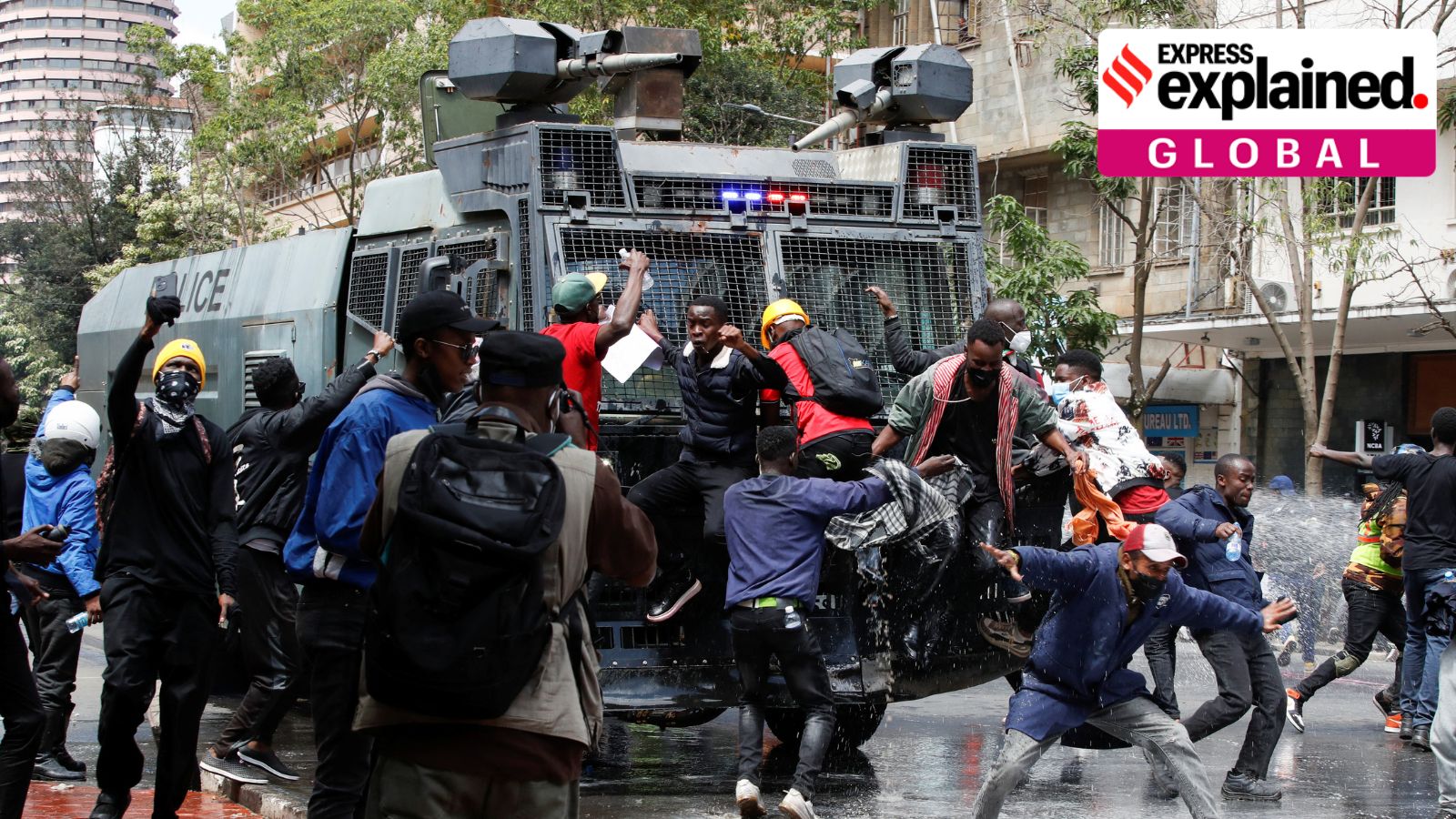How Kenya’s finance bill sparked nationwide unrest
Seeing the hostile response to the legislation President William Ruto has said in a press briefing that he will not sign the bill.
 Protestors clashed with the police in Nairobi on Tuesday. (Monicah Mwangi/Reuters)
Protestors clashed with the police in Nairobi on Tuesday. (Monicah Mwangi/Reuters)Written by Saima Mehta
Kenya President Wiliam Ruto on Wednesday (June 26) said that he will not sign a controversial finance bill, bowing to pressure from protesters who have rocked the country over the past week.
Here is all you need to know.
A controversial bill
The Finance Bill 2024, passed on Tuesday by the Kenyan parliament by a 195-106 majority, aimed to raise an additional $ 2.7 billion in taxes as part of the government’s effort to lighten Kenya’s heavy debt load.
At present, Kenya’s public debt amounts to 68% of its Gross Domestic Product (GDP), surpassing the advised limit of 55% by the World Bank and the International Monetary Fund (IMF). Interest payments alone are consuming 37% of Kenya’s annual revenue. The IMF has urged the Kenyan government to cut its deficit and increase its tax base before being eligible for additional financial support.
Among other things, the finance bill introduced a 16% Value Added Tax (VAT) on bread, increased the rate of taxation for mobile transfers which have become a cornerstone of Kenya’s digital economy, introduced a new annual 2.5% tax on car owners, and brought in a gamut of taxes on “environmentally damaging” but daily use products like packaging, plastics, tires, diapers, sanitary pads, computers, and mobile phones. The bill also aimed to apply a 16% VAT to specific financial services, and foreign exchange activities.
Seven days of rage
For a population already stretched due to rising costs of living and growing , the finance bill was always going to be a hard sell. Protests against the bill have been ongoing since last week, even before it was passed in parliament. “We are seeking the bill’s absolute eradication,” Wanjira Wanjiru, a prominent activist involved in the protests, posted on X.
The demonstrations, led by Kenya’s youth under the “7 Days of Rage” banner, have been characterised by well-organised rallies and passionate online movements. Using hashtags such as #RejectFinanceBill2024, #OccupyParliament, and #TotalShutdownKenya, people have come together to express their dissatisfaction. A petition on Change.org calling for the bill to be withdrawn received over 111,000 signatures as people call for the bill to be withdrawn.
In Nairobi, things got particularly ugly when some protestors stormed, and tried to set fire to the Parliament building. Authorities responded forcefully, fighting off protestors with tear gas, water cannon, and even live bullets. The government even sent in the military to manage the “security crisis”.
At least 23 people were killed across Kenya, and another 30 were being treated for bullet wounds, the Kenya Medical Association said on Wednesday, according to Reuters. The number of injured is in the hundreds.
Ruto’s brutal response to protests has meant that despite him now backing down, many Kenyans still want him gone. “I witnessed police brutality against peaceful protesters, and it’s clear that this goes beyond the Finance Bill. It’s time for genuine leadership and meaningful change, not just symbolic gestures,” journalist Amina Wako wrote on X. Notably, Ruto, on Tuesday, had referred to protestors as “treasonous”.
As Kenyan political writer and analyst Nanjala Nyabola told Al Jazeera: “Unfortunately he’s [Ruto’s] burnt through a lot of legitimacy and so it remains unclear whether citizens will give him the benefit of the doubt.”
The author is an intern with The Indian Express
- 01
- 02
- 03
- 04
- 05





































